
Partly because of the prevalence of technology, librarians increasingly are finding they’re tasked with providing a greater variety of services than in the past. Librarians work with people of all ages. Today, librarians may be found not only in public libraries, but in:
- businesses
- hospitals
- museums
- government agencies.
On any given day, librarians may find their work schedules will include:
- social media management
- website building
- reference work
- database design
- cataloging
- instruction
- implementing library services
- a number of other activities
A short listing of skills that graduate school will develop for a career in library science involves:
- oral and written communication
- analytical thinking
- organization
- creativity
- the motivation of employees and associates
- independent judgment.
During the final semester of the master’s program, students will complete a research thesis. For students planning to work in a school setting, a teacher’s certificate will likely be required. The Master of Library and Information Science (MLIS) is a fairly recent type of degree. As you read the school entries, you will see that there are several different ways to designate the program, such as:
- Master of Information Studies
- Master of Librarianship
- Master of Information, among others.
The following guide contains more information about:
- achieving your online master’s degree in library and information science
- how to utilize your degree
- the career positions that are open to you after graduation.
What does a master’s degree in library and information science do?
With an online advanced degree in the field of library and information science, you will be qualified for a wide range of jobs in many different settings, such as in:
- corporations
- academia
- governmental offices and agencies, including the military
The skills and expertise of a librarian will be in high demand wherever there is a need for:
- collection
- research
- analysis of information.
In considering only one job description, that of an academic librarian, it is easy to see that the job tasks are numerous and varied. An academic librarian may, all in the course of one day:
- respond to readers’ questions
- catalog and classify the library’s resources
- recruit, hire, and manage staff members
- organize both paper-based and electronic documents
- maintain responsibility for the library’s computer systems
In addition, an academic librarian must ensure that the library’s materials meet the needs of all the users.
What does the degree cover?
An online master’s in library and information sciences equips students with a strong background in:
- communication
- systems development
- philosophy of library service
- administration
- policy-making and interpreting
- organization
- staff management
- technology
Coursework includes the usual library subjects of:
- collection development
- archiving
- reference work
- cataloging
- the history of libraries
- media for children or young adults
- information resources
- the organization of information
- overview of research methods
- pedagogy
Various degree specializations are possible, such as an emphasis on computer science and the related topics of information architecture or database design.
The curriculum for obtaining an MLS degree will vary a great deal from school to school. Often students will need to enroll in a practicum or internship. The requirements of a particular institution should be understood. The last semester of graduate school will involve a proposal and the production of a thesis.
What jobs are available for degree holders and what is the job outlook for the profession?
Librarians work within the four major types of libraries, each with its own kinds of managers and users. Academic libraries serve colleges and universities. Public libraries exist for the use of municipalities of all sizes. (Thirty percent of 2016 graduates work in public libraries.) School libraries meet the needs of children from kindergarten through grade 12. (Forty percent of librarians work in elementary and secondary schools.) Special libraries are located in specialized places, like:
- museums
- the military
- hospitals
- corporations or private businesses
- government.
Some job titles include:
- business librarian at a business university
- library managers or directors
- digital humanities librarian
- geographic information system map specialist
- supervisory librarian at a state or national library
- technical information specialist
- creative projects manager
- archival consultant
- web analytics manager
- data management services librarian
- director of community service
More job titles will be given in the answer to the FAQ about salaries. The Bureau of Labor Statistics projects that the field of library science will grow 9% in the period 2016-2026.
What salaries can I expect in this field?
Here are a few annual average wage figures:
Public Libraries: $44,780
Archives and Special Collections: $45,710
College and University: $46,688
Elementary and Secondary School Librarians: $53,218
Medical Librarian: $53,866
Acquisitions: $57,749
Non-Profit Organizations: $58,396
Junior Colleges: $65,540
Private Industry: $73,272
Legal Services: $78,530
Academic: $17,500-$80,000
Computer Systems Design and Related Services: $83,940
Government: $27,099-$106,000
As with most careers, location plays a part in earnings. Washington, D.C., for instance, employs many more librarians than a state that is not centrally located. The salaries reflect the difference. In D.C., the annual mean wage for librarians is $84,090. In Wyoming, it is $52,690.
Nationwide, the average full-time salary for employed 2016 graduates was $51,798.
(Salary information comes from the Bureau of Labor Statistics, LibSource, and The Library Journal, Oct. 2017.)
Why should I study online instead of in a traditional college or university?
Online schools have many appealing features, such as the ability to earn a degree while fulfilling personal responsibilities such as a job and a home life. You will not spend time traveling to and from classes. You won’t have traffic or parking hassles. Many colleges and universities offer a lower rate of tuition for those taking online classes. Accelerated programs are also an option.
How do I find the online master’s program in library and information science that is right for me?
Assessing the pros and cons of an online school involves the same procedures as assessing a traditional institution. You search for accredited colleges, for instance, with attractive student/faculty ratios. You would ascertain whether a school’s coursework fulfills the degree requirements. You want a school with affordable tuition. You seek an online school with reliable, accessible technology support. After-graduation resources are also very important. All of these factors may be checked electronically.
Does getting an online degree get me a different diploma than people who go to a brick-and-mortar institution?
Attending an online school for your master’s degree in library and information science will earn you the exact same diploma as if you had attended the brick-and-mortar college or university. The word online will not appear on your diploma. In many cases, you will have the same instructors that you would have had if you had physically attended the school.
How will I pay for an online master’s degree in library and information science?
As you read the information for the schools listed here, you’ll notice that many of them offer a tuition discount to online students. Also, the higher out-of-state tuition may often be waived for online students. Applications for federal student aid and scholarships are made in the same way for online schools as for traditional schools.
What kind of skills does online college require?
Whether you attend an online or a traditional school, you should possess certain qualities, such as personal discipline and the ability to organize and prioritize responsibilities. Tests can be found online to assess these qualities. You will also need a certain level of technological proficiency, but the fact that you have read to this point in this document attests to your abilities.
How were these rankings arrived at?
A number of factors entered into this ranking of the 10 best deals on online master’s degrees in library and information science programs. These factors are broken down in the bullet points below. Where there is a tie on points in school rankings, tuition cost will be the deciding factor. Another factor is a school’s student/faculty ratio, as well as bonus points that may be awarded for tuition breaks for out of state online students. A more detailed breakdown of the process is described here.
#10 – University of Missouri
Columbia, Missouri
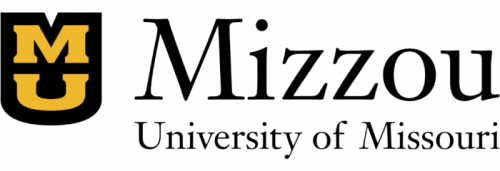
Online Master of Library and Information Science
Website
Points: 11
Enrollment: 33,239
Tuition: $23,172
The University of Missouri was the first public institution of higher learning west of the Mississippi River. The student/faculty ratio is 19 to 1. The school offers an online master of library and information science program. It’s a 39 credit hour program including coursework in the organization of information and digital libraries. The University of Missouri offers an online, graduate tuition rate of $360 per credit hour for this program. The school is accredited by the Higher Learning Commission of the North Central Association of Colleges and Schools.
#9 – University of South Florida
Tampa, Florida
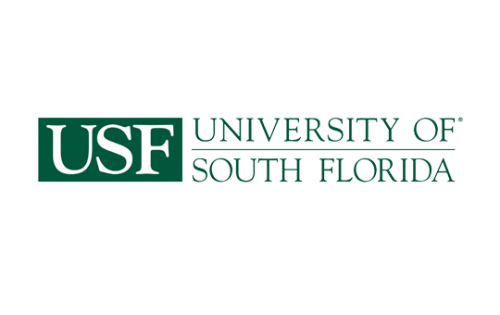
Master of Arts in Library and Information Science Online
Website
Points: 11
Enrollment: 42,861
Tuition: $19,048
The University of South Florida is the fourth-largest institution of higher learning in the Sunshine State. The student/faculty ratio is 22:1. The school offers an online master of arts in library and information science. It’s a 39 credit hour program, including coursework in instructional graphics and history of libraries. The University of South Florida offers an online, out of state, graduate tuition rate of $877.17 per credit hour for this program. The school is accredited by the Southern Association of Colleges and Schools, Commission on Colleges.
#8 – North Carolina Central University
Durham, North Carolina
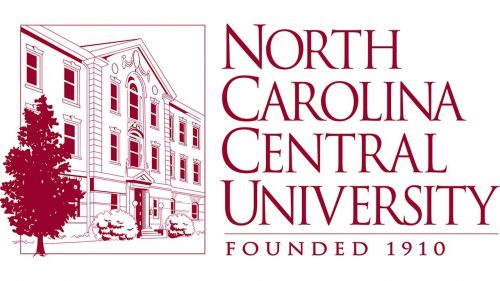
Online Master of Library Science
Website
Points: 12
Enrollment: 8,094
Tuition: $19,106
North Carolina Central University is an HBCU that was established in 1891. The student/faculty ratio is 16:1. The school offers an online master of library science program. It’s a 36 credit hour program including coursework in uses of information and research methods. North Carolina Central University offers an online, out of state, graduate tuition rate of $891.64 per credit hour for this program. The school is accredited by the Southern Association of Colleges and Schools, Commission on Colleges.
#7 – University of North Carolina at Greensboro
Greensboro, North Carolina
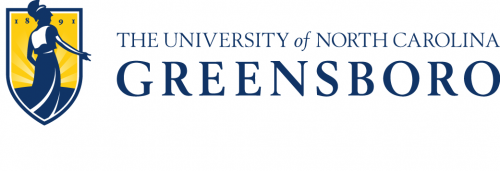
Master of Library and Information Studies Online
Website
Points: 12
Enrollment: 19,647
Tuition: $18,937
The University of North Carolina at Greensboro was established in 1891, and the school mascot is the Spartan. It has a student/faculty ratio of 18:1. The school offers an online master of library and information studies. It’s a 36 credit hour program, including coursework in archival management and information ethics. The University of North Carolina at Greensboro offers an online out of state graduate tuition rate of $534.41 per credit hour for this program. The school is accredited by the Southern Association of Colleges and Schools, Commission on Colleges.
#6 – University of North Texas
Denton, Texas
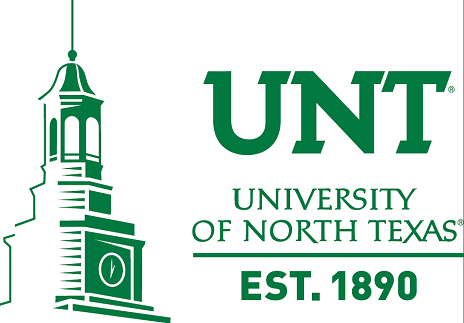
Online Master of Science in Library Science
Website
Points: 12
Enrollment: 38,145
Tuition: $12,794
The University of North Texas was established as a teacher’s college in 1890. It has a student/faculty ratio of 26:1. The school offers an online master of science in library science degree. It’s a 36 credit hour program, including coursework in information organization and knowledge inquiry. The University of North Texas offers an online, graduate, non-resident tuition rate of $505.16 per credit hour. The school is accredited by the Southern Association of Colleges and Schools, Commission on Colleges.
#5 – East Carolina University
Greenville, North Carolina
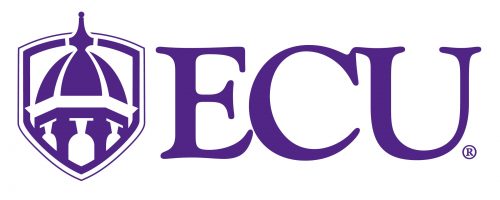
Master of Library of Science Online
Website
Points: 13
Enrollment: 28,962
Tuition: $17,898
East Carolina University is the third-largest institution of higher learning in the Tarheel State. It has a student/faculty ratio of 18:1. The school offers an online master of library science degree. It’s a 36 credit hour program, including coursework in technology for libraries and materials for young adults. East Carolina University offers an online, out of state, graduate tuition rate of $877.35 per credit hour for this program. The school is accredited by the Southern Association of Colleges and Schools, Commission on Colleges.
#4 – University of Southern Mississippi
Hattiesburg, Mississippi
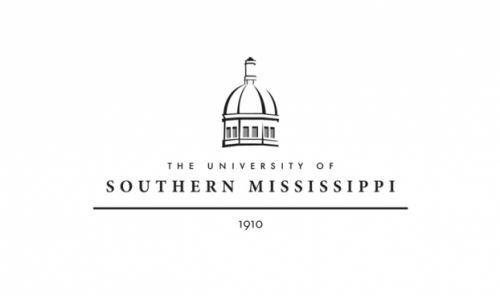
Online Master of Library and Information Science
Website
Points: 13
Enrollment: 14,552
Tuition: $16,419
The University of Southern Mississippi is classified by the Carnegie Foundation as a research university with high research activity. It has a student/faculty ratio of 17:1. The school offers an online master of library and information science degree. It’s a 40 credit hour program including coursework in library management and library information science. The University of Southern Mississippi offers an online graduate tuition rate of $446.12 per credit hour, regardless of residency. The school is accredited by the Southern Association of Colleges and Schools, Commission on Colleges.
#3 – Valdosta State University
Valdosta, Georgia

Master of Library and Information Science Online
Website
Points: 13
Enrollment: 11,375
Tuition: $15,750
Valdosta State University began life in 1906 as a Normal College for the education of teachers. The student/faculty ratio is 20:1. The school offers an online master of library and information science degree. It’s a 39 credit hour program, including coursework in services in the knowledge society and resources for clients. Valdosta State University offers an online, out of state, graduate tuition rate of $505.50 per credit hour for this program. The school is accredited by the Southern Association of Colleges and Schools, Commission on Colleges.
#2 – Texas Woman’s University
Denton, Texas

Online Master of Library Science
Website
Points: 14
Enrollment: 15,655
Tuition: $12,142
Texas Woman’s University is the largest public institution of higher learning in the US that primarily serves women. The student/faculty ratio is 19:1. The school offers an online master of library science degree. It’s a 36 credit hour program, including coursework in information organization and collection development. Texas Woman’s University offers an online, out of state, graduate tuition rate of $674.56 per credit hour for this program. The school is accredited by the Southern Association of Colleges and Schools, Commission on Colleges.
#1 – Dominican University
River Forest, Illinois
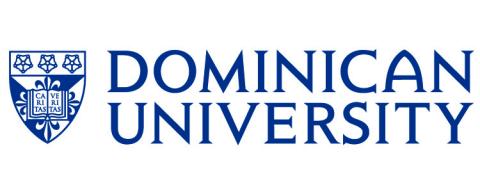
Master of Library and Information Science Online
Website
Points:15
Enrollment: 3,522
Tuition: $17,993
Dominican University is a Roman Catholic institution of higher learning affiliated with the Sinsinawa Dominican Sisters. The student/faculty ratio is 11:1. The school offers an online master of library and information science degree. It’s a 36 credit hour program, including coursework in the organization of knowledge and facilitating use knowledge. Dominican University offers an online, graduate tuition rate of $850 per credit hour for this program. The school is accredited by the Higher Learning Commission of the North Central Association of Schools and Colleges.
By Jennifer W. Eisenberg
September 2018
Related:
This concludes our ranking of great deals on online master’s in library science degrees.